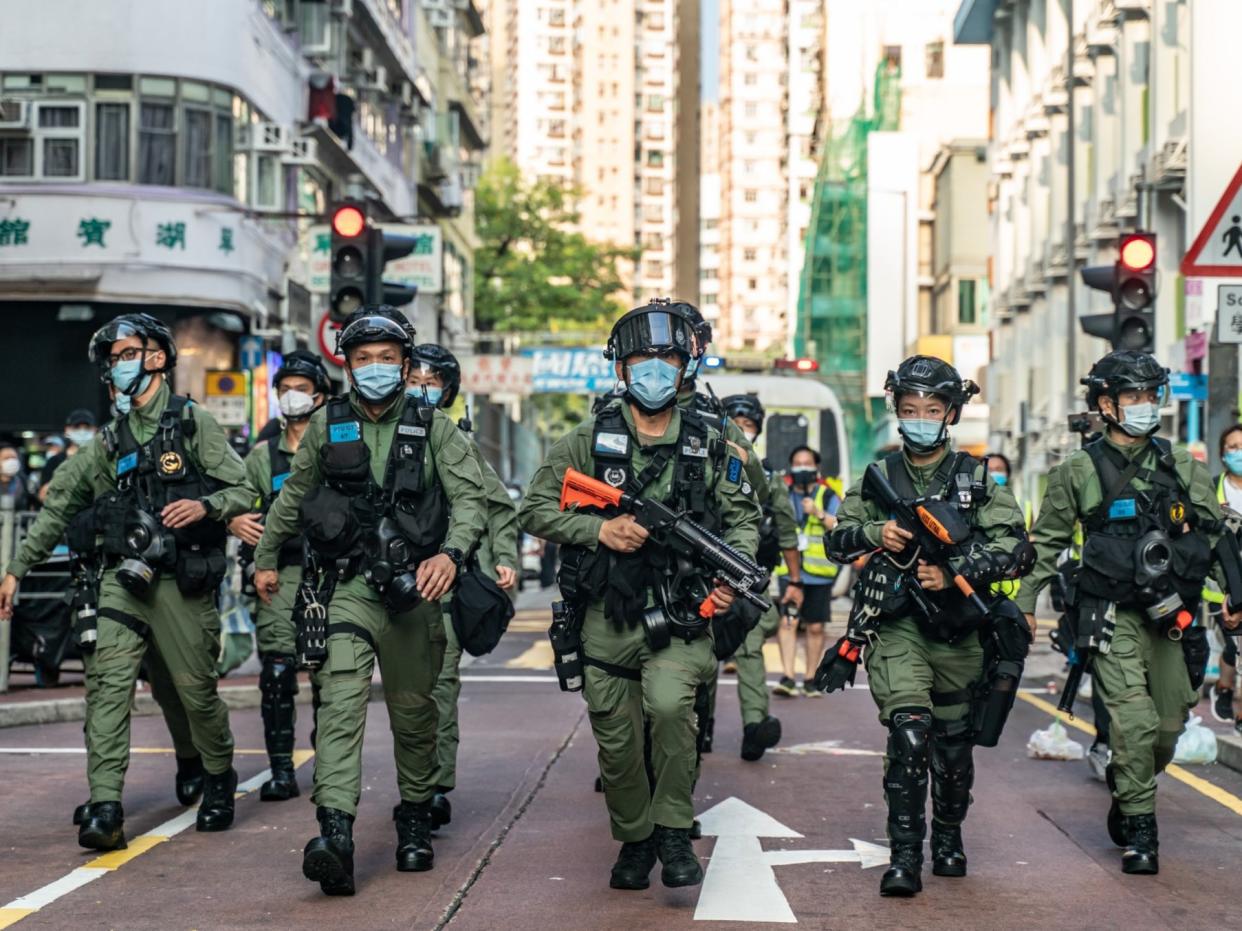China manipulating international institutions, warns UK armed forces chief

China is following a policy of manipulating international institutions and laws while harnessing technologies to achieve aggressive military strategic goals disguised as civilian ventures, the chief of Britain’s armed forces has warned.
The use of what has become known as “lawfare” in the security field can be traced back to a doctrine of “Unrestricted Warfare” produced by the Peoples Liberation Army (PLA) by in late 1990s and one that has been honed ever since, said General Sir Nick Carter.
Chinese tactics have “outpaced the evolution of international law to avoid their actions being classified as conflict under the current definitions of international law”, held General Carter. “Authoritative PLA texts have argued that the ambiguous boundary between peace and war opens up opportunities for the military to achieve its ends, disguising its activities as civilian, and therefore peaceful.”
Beijing has also made huge advances in the new frontier of space, stressed the chief of defence staff.
“China’s new Strategic Support Force is designed to achieve dominance in the space and cyber domains. It commands satellite information attack and defence forces; electronic assault forces and Internet assault forces; campaign information operations forces, which include conventional electronic warfare forces, anti-radiation assault forces, and battlefield cyber warfare forces. All of this is available in the open domain,” said General Carter.
At the same time China is building up its conventional strength rapidly and massively. This included, the General continued, “growing the largest maritime surface and sub-surface battle force in the world; an armoury of ground launched cruise and ballistic missiles – some of which have ten times the range of conventional ballistic missiles; one of the world’s largest forces of advanced long range surface-to-air systems; and of course expanding the PRC’s (Peoples Republic of China’s) overseas military footprint.”
General Carter’s assessment came at a time when China is under critical scrutiny over a number of issues. The World Health Organisation (WHO), under its Chinese backed director general, Tedros Adhanom Ghebreyesus, has been accused of wilfully turning a blind eye to claims that Beijing hid the initial outbreak of coronavirus and has failed to provide information about the virus.
Donald Trump has announced that he was “ terminating” the relationship of the US with WHO because of its failure over holding Beijing to account over the pandemic, and member states of the WHO have voted for an international investigation into the origins of the pandemic.
China has also been accused of deliberately spreading “ debt dependency” through its ‘Belt and Road programme’ in the developing world and then taking over strategic territory, such as the port of Hambantota in Sri Lanka, when countries find they cannot repay loans.
The Chinese military have, in the meantime, been involved in clashes with Indian troops in the Himalayan border between the two countries, and Beijing has been holding military drills near Taiwan. There have been confrontations with a number of China’s neighbouring states and Beijing has cracked down on civil rights in Hong Kong after taking control of the territory.
“The Covid crisis has highlighted how the use of propaganda, data misuse, disinformation, and strategic influence is presenting complex and rapidly evolving challenges for researchers, civil society, and of course for policymakers. And our autocratic rivals have utilised these techniques most effectively,” said General Carter. “The Australian Strategic Policy Institute is tracking how a range of actors are manipulating the information environment to exploit the Covid-19 crisis for strategic gain.”
As well as China, General Carter accused Russia, Iran and North Korea of carrying out illicit aggression.
“Russia has used cyber and information attacks against its opponents regularly in the last few years. Notable examples included Ukraine’s financial and energy sectors in 2017 and the Organisation for the Prohibition of Chemical Weapons in 2018. Iran and North Korea are following suit”, General Carter said.
He added: “And the online national security forum “War on the Rocks” in their “Digital Authoritarianism” series highlights Russia’s hack-and-leak, “kompromat”, operations and the St Petersburg-based Internet Research Agency troll farm which engages in sowing division abroad.”
Read more
We must try to learn from China – their economy is larger now than it was before the virus struck

 Yahoo News
Yahoo News 
